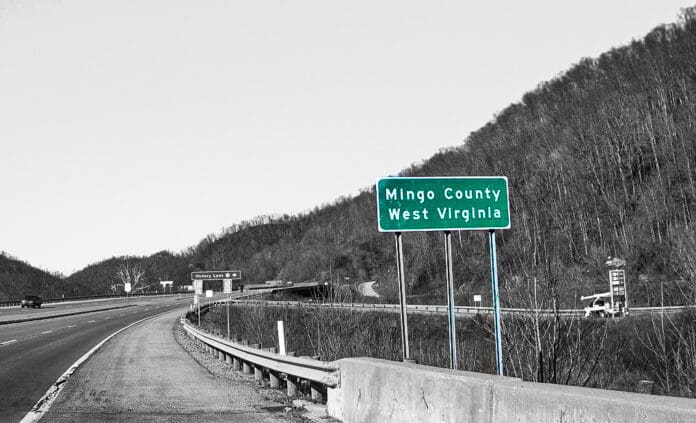
On June 7, 2011, Marshall County resident Bob Miller sent a Letter to the Editor titled, “Learn About Redistricting” in which he thanked Delegates Storch and Ferns for hosting a joint Town Hall and encouraging people to attend as the legislature was working on the year’s redistricting. This columnist was honored to serve on two redistricting committees, the first in 2011 as a freshman member of the legislature.
Included in the letter were several links to help residents prepare to attend the Town Hall and some information pertaining to redistricting. One of those links was to an editorial piece written (May 28, 2011) by The Intelligencers’ Editor J. Michael Myer, titled “Let’s Just Move Mason County.”
During the 2011 redistricting, Mason County moved from the Second to the Third Congressional District. This is a different flip.
A few weeks ago, the West Virginia Senate saw four of its incumbent senators not re-elected. These include Senate President Craig Blair, local Senate Health Chairman Mike Maroney, Senate self-proclaimed antagonist Robert Karnes, and a Southern Senator Chandler Swope representing the Sixth District. Swope was first elected in 2016, following Bill Cole, who ran for governor that year.
With Senator Swope turning 82 this year, at face value, this could be seen as a reason the Senator was not successful, although difficult to fathom with other current candidates on the ballot. There were three candidates in that race, which could also be a reason the votes did not fall in the senator’s favor.
Oftentimes, incumbency comes with a certain advantage, but multi-candidate races can be challenging. As has been seen in the City of Wheeling municipal races, every vote counts.
Senator Swope and former Del. Eric Porterfield are both from Mercer County, and the prevailing candidate, Craig Hart, is from Mingo County. But now, the senator has filed an official challenge to the result, alleging there is evidence to support Democrats voting in Republican races, as well as other election issues.
This recent spotlight cast on Mingo County raises serious concerns about the integrity and transparency of local elections.
Mingo County has an interesting history with election controversy. The county’s reputation for contentious politics has been blemished by incidents of vote buying and other forms of election fraud Northern Panhandlers may find difficult to comprehend. This week’s events indicate they may still be happening, showing signs a need for immediate reform, if true, so that transparency can prevail and election integrity is not lost.
On first look at election results, it appears after the votes were tallied in the Sixth Senatorial District, (which includes all of Mercer County and parts of Wayne, McDowell, and Mingo counties) Hart had 4,847, Swope had 4,384, and Porterfield with 2,633. The West Virginia Secretary of State reported that of 1,181,437 registered voters, there were 360,175 ballots cast, for a voter turnout of 30.49%.
Secretary Warner’s office further reported that in Mingo County, there are 17,124 registered voters, and 5,072 ballots were cast on May 14, 2024. Court documents indicate Mingo County followed the rest of the state with just under thirty percent registered voters turning out to vote in the recent primary.
However, documents also indicate, in Mingo County, of 7,203 registered Democrats, 1,440 ballots were cast in the Democratic primary, for a turnout of 19.99%, BUT of the 5,133 registered Republican voters, 3,554 ballots were cast in the primary election.
This indicated a voter turnout of 69.24%. In the 28 precincts located in Mingo County, 12 precincts reported Republican voter turnout of over 70%.
Swope’s notice also includes affidavits from Mingo County voters. In reviewing these court documents, there are four affidavits and one statement included, which all tell similar tales of being offered Republican ballots after indicating the voter was a registered democrat or independent; naming poll workers who watched these individuals vote; not being certain if their ballots were entered into the machines, because they did not see this action take place.
The Senator wishes the poll books be reviewed in hopes of shining some light on the inconsistencies listed and shedding some light on how to move forward. Citing past case law, the entire vote of a district should be rejected where errors are found of precinct the challenge demands that ballots cast in the precincts where errors are found. In Mingo County, where Mr. Hart received 2,152 votes, Senator Swope received 364 votes, and Mr. Porterfield received 344 votes, so throwing out the votes in affected precincts could alter the outcome of this election.
Senator Swope’s challenge to Mingo County elections could be a pivotal moment to the region. If his allegations are proven to be true, it could prompt significant reforms in how elections are conducted, not just in Mingo County but also across the state. There needs to be bipartisan support and a commitment to the underlying issues without political bias. This will require the cooperation of local officials, state legislators, and the community at large.
But Senator Swope’s assertions against Mingo County elections is more than just a local issue.
It touches on fundamental aspects of democratic governance and electoral integrity. While his allegations have no doubt sparked controversy and debate, they also offer an opportunity to critically assess and improve the electoral process. Ensuring fair and transparent elections is essential for maintaining public trust and upholding the principles of democracy. As this investigation unfolds, actions taken in response to these allegations will be closely observed, potentially setting a precedent for other regions facing similar issues.
The outcome of this action will likely have lasting implications on Mingo County and beyond. Whether it leads to significant electoral reforms or whatever the outcome may be, the discussion and debate sparked, underscores the importance of vigilance and accountability in the democratic process.
As people from West Virginia and the rest of the country watch this unfold, the hope is that this challenge will ultimately strengthen the integrity of elections and restore faith in the democratic system.

